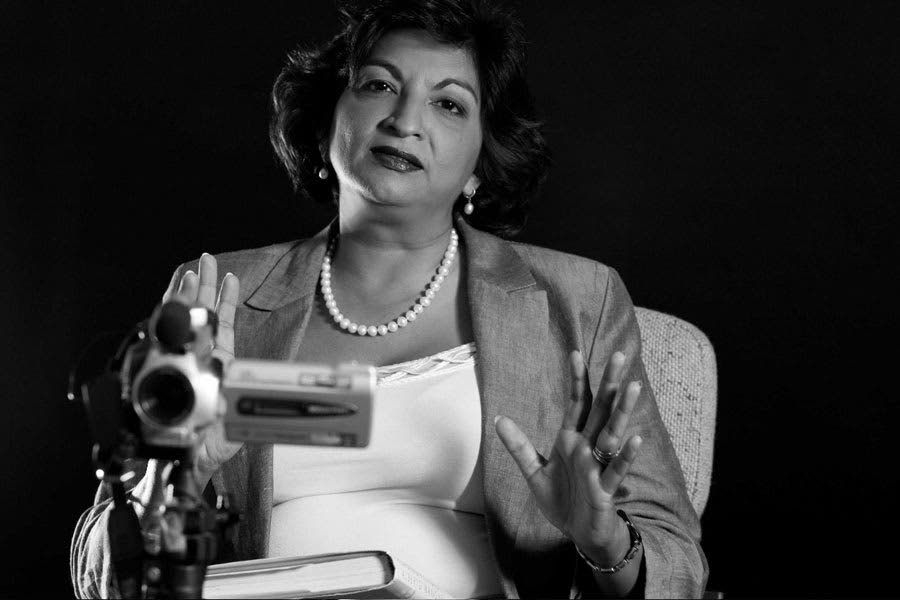Challenges of work/life balance

"For fast-acting relief, try slowing down." -Lily Tomlin
All good research, the University of the West Indies’ (UWI) Professor Patricia Mohammed says comes out of one’s personal experience. So while dealing with a mother with Alzheimer, Mohammed was led to contemplate the work/life balance and ageing.
This led to a research project called The Work/Life Balance and Ageing in Trinidad Research Project funded through the Research Development Impact Fund of the UWI, St Augustine. The findings of this project which ran from 2015 and will wrap up in May will be presented at a lunchtime seminar on March 21 at UWI’s Institute for Gender and Development Studies, seminar room, called Connecting the Dots: Work. Life. Balance. Ageing - Finding Equilibrium.
There will be also be a symposium with the same name from April 26-27 which will bring together project partners including Trinidad and Tobago Association of Retired Persons (TTARP), United Nations Economic Commission for Latin America, and the Caribbean (UNECLAC), International Labour Organization, Decent Work Team and Office for the Caribbean (ILO/DWT) and Women Working for Social Progress (Working Women) among others.
Mohammed in a phone interview said, “All good research problems come out of a personal experience that allows you to then, if you look around, you realise you are not the only one with this experience.
“I have been dealing with an ‘Alzheimic’ mother for about ten years and the kinds of challenges it placed on me and my siblings with also an ageing father. We were handling a household with two ageing people one of whom needed at first needed daily care and then round the clock care. Then it deteriorated. She died one year ago.
“The challenges of dealing with that and my siblings were all highly professional. The time, energy, cost and the unavailability of care-workers who would actually be able to take this on to help us were some of the challenges. Looking at my mother and also how she attempted to preserve the quality of her life even while she deteriorated, all of that started me thinking about it. As I began to look around I realised there were many people in the same situation.”
Mohammed said she realised people were living longer and this was a growing phenomena many people were dealing with. “There is an expanding ageing population and those of us in the workforce did not have the time and, sometimes, resources to handle what is required and what it did is place an additional burden on us.”

Mohammed is the research project’s lead along with co-leader and investigator Dr Cheryl Ann-Boodram. Professor Paula Morgan was advisor and investigator. Dr Angelique Nixon and Deborah McFee were investigators and Renee Cozier and Rachel Taylor, research assistants.
For her, it is not a question of either/or, but wanting to understand the relationship between the work one performs; having productive, creative working lives and still caring for an ageing population.
The research brought many issues into focus among them whether or not people were happy doing the kind of work they do.
The research methodology composed of talking circles (one of which was talking to people who care for elderly parents), a survey, among other methods of data collection. While there were many findings, a major one was that many people in TT were stressed out by work. While people, she added, were interested in spending more time with their families and elderly parents, they often did not have the time.
“What is the balance you find within your work life? One of the interesting things we found out is that people are not necessarily unhappy with their work life...but it is how you marry the balance between work and having the time to spend with children, leisure and not to be pressured all the time. Another question to be asked is one being sufficiently compensate for the time spent in work?”
Besides stress, another major impediment to finding equilibrium in one’s work life balance in TT was traffic. It was, she said, was one of the primary areas of concern. Participants in the project, Mohammed added, wanted staggered working hours.
As the nature of work changes, Mohammed believes that the project is mainly saying that the country could not afford not to plan for the working future. “Developed countries like Sweden, Norway had to plan... they anticipated certain things and planned for it. We need to plan for the changing demographics. We need to plan for what our ageing population would need, we need to plan pension, how people manage work life so we don’t have stressors which lead to a range of diseases.”
While it formally ends in May 2018, Mohammed said she is bringing together some regional partners from Martinique, Jamaica, Barbados, St Kitts which would continue interrogation into the issue.
Both the lunch time seminar and symposium is open to the public. The symposium will feature a wide cross section of people including the National Insurance Board (NIB)’s ex-officio executive director Naila Persad-Poliah.
At the symposium Mohammed believes a number of issues will come up and one of them will be the retirement age. When asked about it, Mohammed said, “If you look around at the other countries, many countries have increased their age of retirement. Barbados have increased theirs, Dominica has...most countries have been responding by increasing and not just because they want don’t want to pay out pensions quickly but because people are living longer, they have productive lives and they have a lot to give back.”
She said there were no answers and the symposium seeks not to give answers but to foster discussion. The symposium is open to the public for a small registration fee. The registration fees are $420 per person, $200 day pass, $100 students and $1000 display table.
As for the research project’s aims, “One of the primary aims is to look at existing policy and see where there needs policy change, to begin to impact on that. Second part is to see if there is continued research we need to do and third point is the need to engage a population and to find solutions that work for us...but together find solutions.
“The end result is the more productive we are as a society; the better is our quality of life,” she said.


Comments
"Challenges of work/life balance"